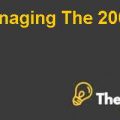
Competitive situation
Competition will significantly impact the habits, consumptions and behavior of the Chinese people. Tasly is facing incredible competition from the national and multinational companies. It has been evaluated that China and two foreign companies control almost 10% of the total market share of the economy, which will increase the difficulty for Tasly to compete successfully in the market. Further, distribution is also an issue in pharmaceutical markets and it has been evaluated that China’s top three distributors cover almost 20% of the total market share of the economy (Sun, 2011).
Chinese markets have made remarkable developments over the last few years and the gross output has increased from $183.57 billion to $118.25 billion in 2010 with an annual growth of 15.4%, which is large enough than GDP. The latest developments in area tend Tasly to achieve economies of scale, which will reduce the cost of the unit produced, hence, it provides an opportunity to the company to compete successfully against national and multinational companies. Further, another benefit provided to companies incorporated in China is that the country is that it encourages them to enhance their production facility, so it will benefit local companies to sell pharmaceutical products at a relatively cheaper price than its competitors (Francesca, 2012).
Tasly adopts a direct sale strategy by selling the product at a relatively low price in order to achieve the market share, so they are continuously targeting companies that already have possession in the global regional market and have the local established global channels. Initially, the company enters into the ordinary markets of prescription medicines, which helps the company to achieve the rectification of medical usage of the company. Later on, the company adopts a strategy to promote products to its doctors and hospitals so as to compete with already established giants.
Further, R&D division of Tasly also helps the organization to compete across the globe because the company invests around 10% of its annual revenue in the R&D division, which helps the company to obtain a competitive edge over their competitors. Further, the company also benefited from getting low cost in raw material and it is a disadvantage for foreign companies that operate their plants in foreign countries and are unable to get the advantage of lower price in raw material.
Trends in technology
Technology is one of the most important factor over which foreign companies have monopoly because they have the latest technology, which will support their research and development division and provide them an opportunity to develop medicines that cure diseases. In 2010, foreign giants represent around 90% of the total insulin market but on the other hand, China is also promoting companies to invest heavily on innovations. In order to promote this, the government has invested $3 billion in significant new drugs, which also attracted the non-public sector as well (Ayyagari, 2011).
Tasly has understood the technological trend, so it is continually considering to invest in new equipments which will help them in research and development and to cope with the latest requirement. It can further be justified from the figures that the company has continuously invested in tangible assets that have increased by 22.79%, 29.6% and 24.54% in 2011, 2012 and 2013 respectively. Further, the investment in technological equipment does tend the company to report an increased profit margin.
China is very active in patent application and in 2010 it reported around 10, 894 patents that is seven times more than in 2000. This makes China the second highest patent application country. Further, patents became more important for TCM, so Tasly would get benefit in this area because it would help the organization in entering the main stream of international medical market.
Legal and regulatory trends
Governmental organizations have emphasized strong control over the pharmaceutical industries in order to protect the rights of manufacturing organizations and distribution sectors. Further, China is one of the most interesting targets for foreign investors because China is the largest economy but on the other hand, operating in China is incredibly difficult because the government has exercised strong regulation that is considered as time consuming, risky and expensive as compared to other new emerging markets.
China requires to comply with the standards of quality and safety when manufacturing medicines. Quality indicates that the medicine must satisfy the minimum quality standard and it has been manufactured in a healthy environment and the medicine is capable enough of delivering the cure for which it has been manufactured. Safety refers to the protection of its employees. Pharmaceutical industries may require to deal with heavy toxic acids, which may harm the individuals in the long run, so it is required that pharmaceutical industries adopt the safety measures in their workplace and there shall be options available for any haphazard situation. (Matus, 2012).....................................
This is just a sample partial case solution. Please place the order on the website to order your own originally done case solution.













